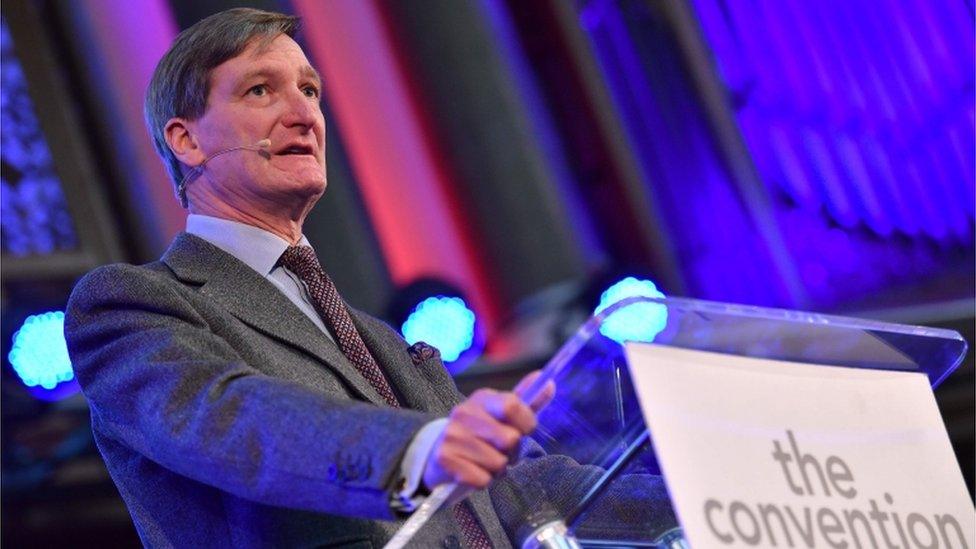May says opponents of Brexit deal risk 'letting British people down'
- Published
- comments
Theresa May: "Over the next 24 hours, give this deal a second look"
Theresa May has warned opponents of her Brexit deal that they risk "letting the British people down" as Labour said the prime minister faced a "humiliating defeat" in Tuesday's crunch vote.
She urged critics to give the deal "a second look", insisting new assurances on the Irish border had "legal force".
She said the "history books" would judge if MPs delivered on Brexit while safeguarding the economy and security.
But Jeremy Corbyn said the PM had "completely and utterly failed".
And the SNP said the PM was "in fantasy land and the government should stop threatening no-deal".
MPs will vote on the terms of the UK's withdrawal from the EU and declaration on future relations on Tuesday evening.
Labour and the other opposition parties will vote against the deal while about 100 Conservative MPs, and the Democratic Unionist Party's 10 MPs, could also join them.
Both Mrs May and Mr Corbyn met their backbenchers after the PM's Commons statement on Monday night - the PM to appeal once more for their support and the Labour leader to reiterate his plan to call for a general election if the deal is rejected.
Mr Corbyn also told his MPs a no-confidence vote in the prime minister would be "coming soon", according to BBC political correspondent Iain Watson.
Assistant whip Gareth Johnson has become the latest member of the government to quit his job over the deal, saying in his resignation letter to the PM that it would be "detrimental to our nation's interests".
He added: "The time has come to place my loyalty to my country above my loyalty to the government."
Ahead of the vote, Mrs May briefed MPs on the controversial issue of the "backstop" - the fallback plan to avoid any return to physical Northern Ireland border checks.
She said her "absolute conviction" was that the UK and EU would be able to finalise their future relationship by the end of 2020, meaning the backstop would never be needed.
She published a joint letter, external from European Council President Donald Tusk and European Commission President Jean-Claude Juncker in which they stressed their "firm commitment" to working towards such an agreement - and said if the backstop were to be used it would be for the "shortest possible period".
However, they said they could not add anything to change the terms of the deal negotiated with Mrs May.
The PM told MPs: "I say to members on all sides of this house, whatever you may have previously concluded, over these next 24 hours, give this deal a second look.
"It is not perfect, but when the history books are written, people will look at the decision of this House tomorrow and ask 'did we deliver on the country's vote to leave the EU, did we safeguard our economy, security or union or did we let the British people down'."
Five Conservative Brexiteer MPs who have been critics of the withdrawal agreement have now said they will support the government in the vote on Tuesday, including Sir Geoffrey Clifton-Brown and former Public Accounts Committee chairman Sir Edward Leigh.
But former Labour leader Ed Miliband said the PM must make the government "the servant of the House" if the deal was rejected, giving Parliament an "open and honest process" to express their will.

Warm words aren't enough
By Alex Forsyth, BBC political correspondent
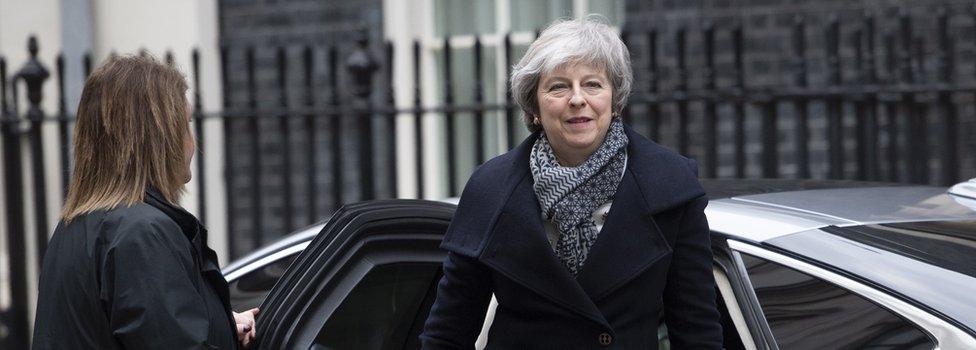
The letter from Presidents Juncker and Tusk was deliberately released at the moment No 10 hoped it might have the most impact - the eve of the crucial Brexit vote.
But regardless of the timing, the attempt to reassure hasn't done enough to convince many senior Brexiteers to swing behind the prime minister's deal.
The contentious Northern Ireland backstop remains the biggest sticking point, and nothing short of a legally watertight guarantee that it can't go on indefinitely will be enough for many of those with concerns.
At this stage, the EU has made clear it won't reopen the negotiated Withdrawal Agreement to include such a guarantee.
So, however warm the words of reassurance offered today, it seems they won't be enough to persuade many opponents to Mrs May's deal to change their mind.

Corbyn: PM "utterly failed" on Brexit legal agreements
What has the UK been offered on Northern Ireland?
The so-called Irish backstop will see the UK and EU share a single customs territory until they settle their future relationship or come up with another solution to stop a hard border.
Many Tory MPs, as well as the Democratic Unionists, are adamantly opposed to it.
The EU has given fresh written assurances about how the backstop might be triggered and how long it would last. The key points, in the letter from top officials Donald Tusk and Jean-Claude Juncker to the PM, are:
The backstop will not affect or supersede the provisions of the 1998 Good Friday Agreement
The backstop will not extend regulatory alignment with EU law in Northern Ireland beyond what is strictly necessary to avoid a hard border
Alternatives to the backstop such as "facilitative arrangements or technologies", will be looked at with progress considered every six months after the UK's departure
Any alternative arrangements would not be "required to replicate" the backstop "provided the underlying objectives continue to be met"
"Were the backstop to enter into force in whole or in part, it is intended to apply only temporarily, unless and until it is superseded by a subsequent agreement," they said.
"The Commission is committed to providing the necessary political impetus and resources to help achieving the objective of making this period as short as possible," it said.
Attorney General Geoffrey Cox said the assurances offered "legal force" to the UK, but admitted they did not alter the "fundamental meanings" in the Withdrawal Agreement - namely that the UK is indefinitely committed to the backstop if it comes into force, as neither side can unilaterally withdraw from it.
Mr Corbyn said it amounted to nothing more than "warm words and aspirations" while the DUP's deputy leader Nigel Dodds said there were no "legally binding assurances" as talked about by the PM in December.
"In fact, there is nothing new," he said.
What happens next?
Here is what is likely to happen:
Tuesday - Day five of debate followed by "meaningful vote" on the PM's deal. MPs will also get to vote on amendments that could reshape the deal. If the deal is rejected Theresa May will get three working days to come up with a "plan B"
Wednesday - Mrs May could head to Brussels to try to get further concessions from the EU
Monday 21 January - Expected Commons vote on "Plan B"
The UK will leave the EU on 29 March unless there is a new act of Parliament preventing that.
Three senior Conservative backbenchers - Nick Boles, Sir Oliver Letwin and Nicky Morgan - have proposed a "European Union Withdrawal Number 2 Bill" if she fails a second time, giving ministers three weeks to get a plan B through Parliament.
If this doesn't work, they propose that the Liaison Committee - made up of the chairmen and chairwomen of all the Commons select committees - should be given "the responsibility to try and come up with its own compromise deal, which would have to go back to the House for a vote".
Downing Street has said it is "extremely concerned" about the plot, which it says could potentially overturn centuries of Parliamentary precedent.
A cross-party group of anti-Brexit politicians have also published proposed legislation to bring about a second referendum on leaving the EU, asking the public whether they want to remain in the EU or leave under the prime minister's deal.
The MPs behind the draft legislation point out that Article 50 - the two-year process by which an EU member leaves the bloc - would have to be extended in order for another poll to take place, meaning the UK would remain a member beyond 29 March.
- Published13 January 2019
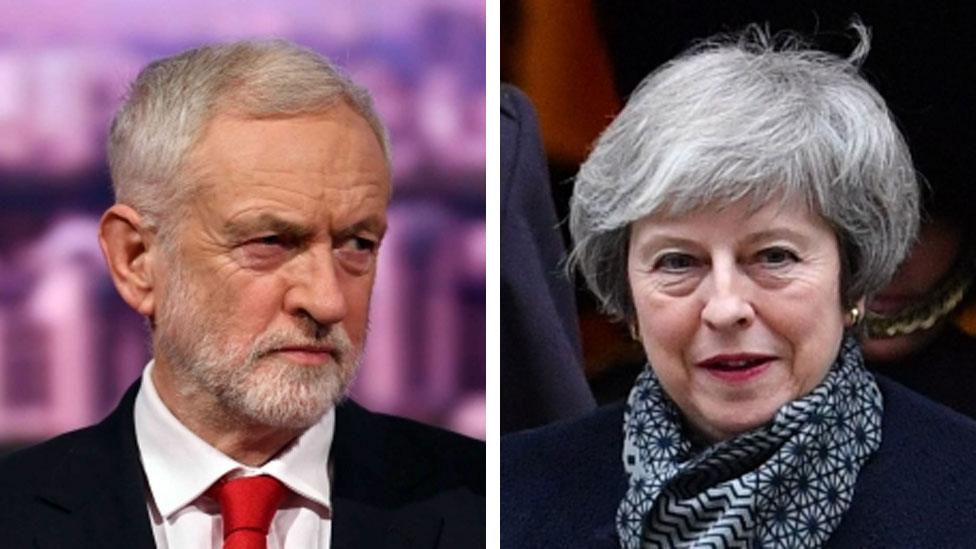
- Published12 January 2019
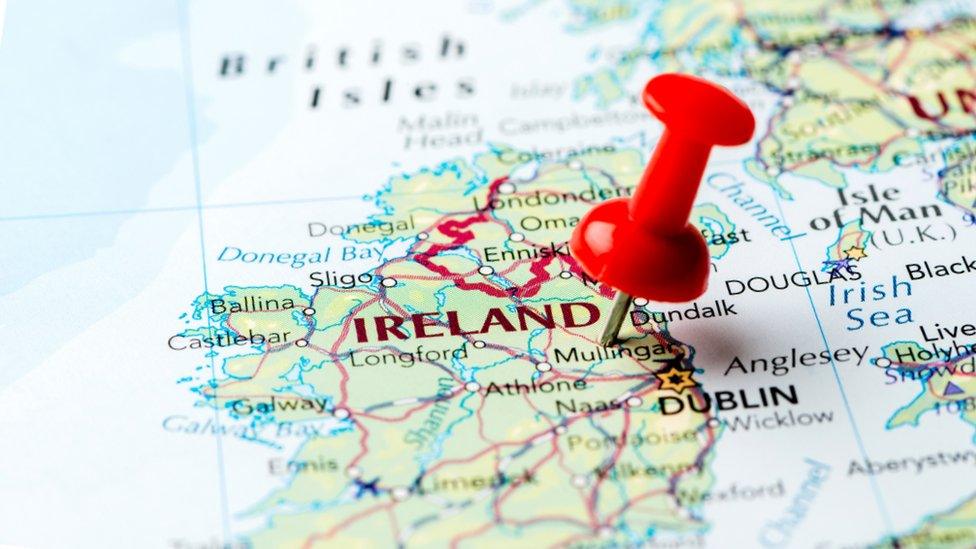
- Published12 January 2019
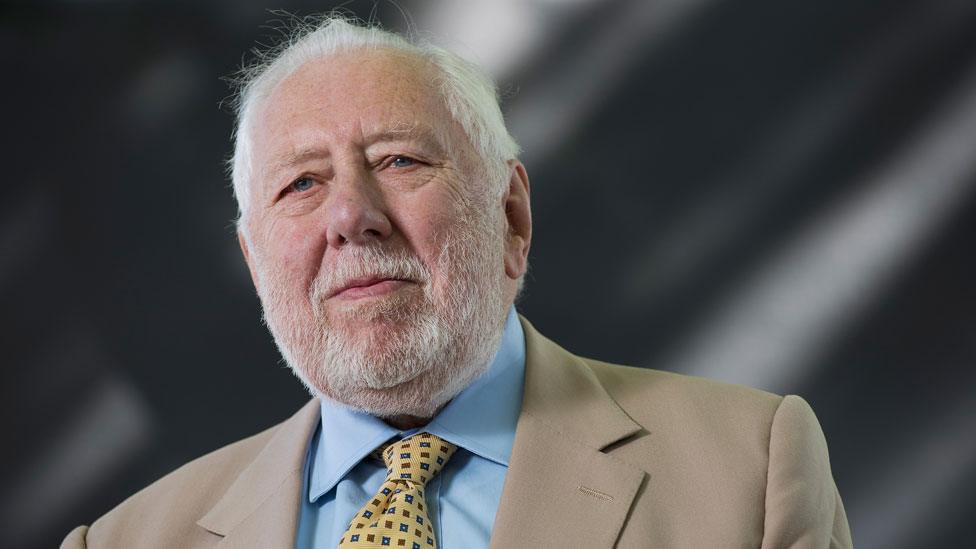
- Published12 January 2019
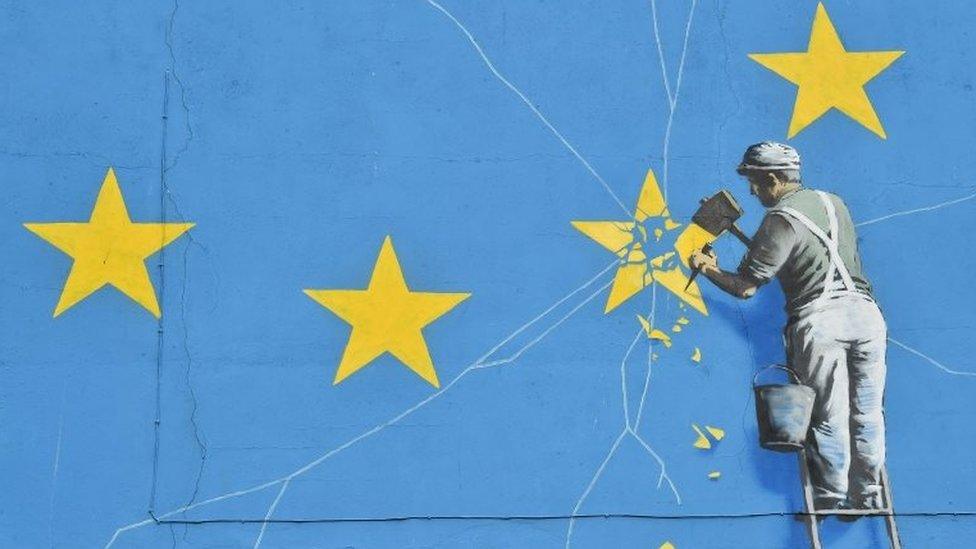
- Published11 January 2019
